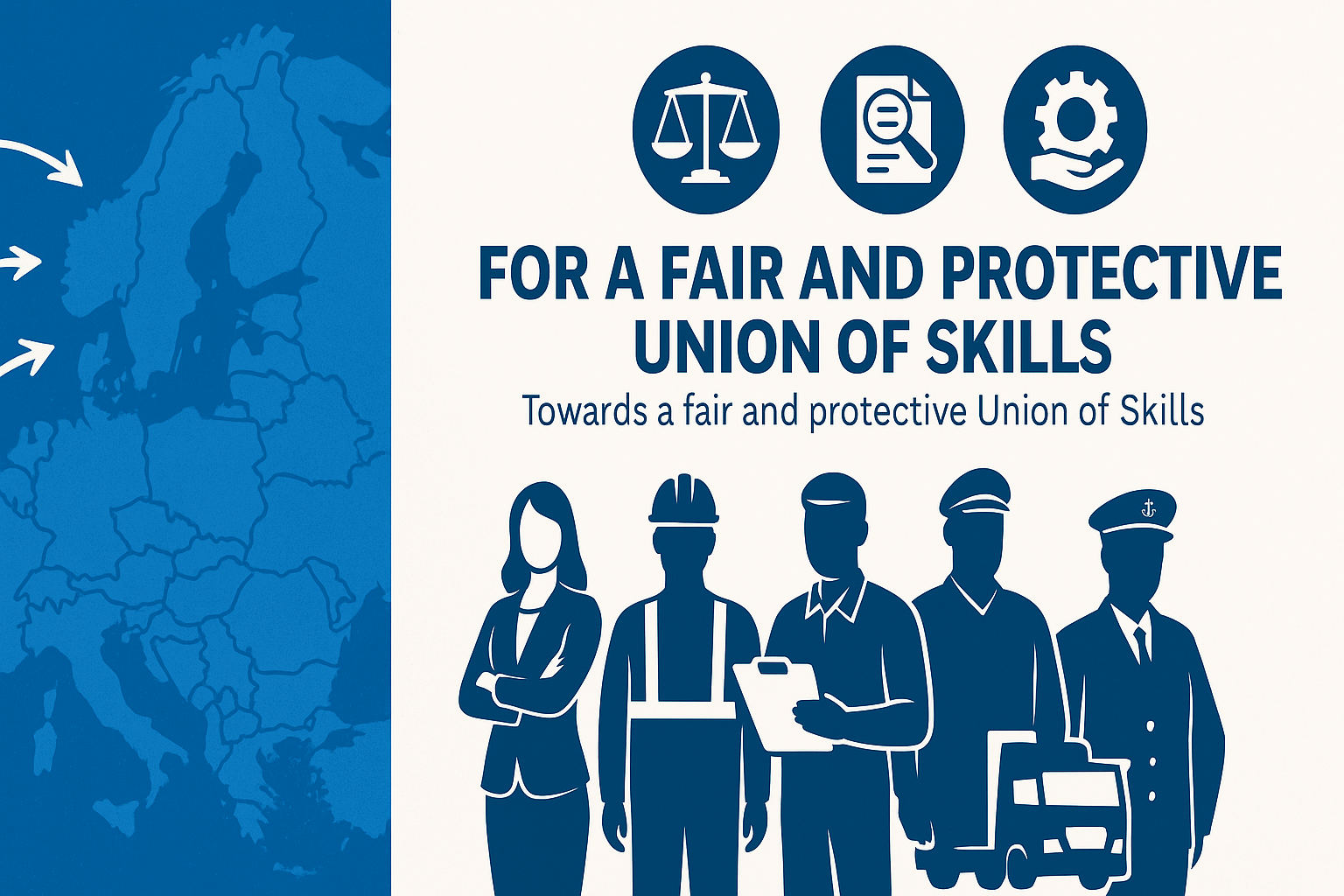Mobility and Posting of Workers in Europe
Building bridges between transport managers across Europe and the world.

- General Context of Mobility and Posting of Workers in Europe
• The freedom of movement for workers is a fundamental principle of the EU, fostering employment and economic competitiveness.
• Posting of workers aims to allow employment flexibility while ensuring equal treatment with local workers.
• However, abuses are frequent: fraudulent posting, cascading subcontracting, precarious working conditions, and circumvention of social regulations.
• The EU has attempted to strengthen the rules with the revised Posting of Workers Directive (2018), but enforcement remains inconsistent across Member States, and fraud control remains insufficient.
2. Identified Issues and Challenges
• Social dumping: Companies exploit differences in wages and social charges between countries to cut costs, creating unfair competition between local and posted workers.
• Insufficient controls: Lack of coordination between Member States, limited resources for labor inspection, fraudulent declarations, and the use of « letterbox companies » to bypass regulations.
• Attractiveness of professions: Many sectors (construction, agriculture, transport) struggle to recruit locally due to difficult working conditions and low wages.
• Fiscal and social disparities: The absence of harmonization in social contributions and taxes creates distortions in competition, benefiting some countries at the expense of others.
3. FICT’s Action Proposals
1. Strengthening Controls and Sanctions
2. Harmonizing Social Protection and Taxation Systems
3. Enhancing Skills and Training for Quality Mobility
4. Combating Cascading Subcontracting
5. Improving Working Conditions and Valuing Professions
Conclusion
FICT’s proposals are structured around these five key areas, addressing European objectives while protecting workers and ensuring fair competition. The challenge is to reconcile mobility with social justice, avoiding the negative effects of unregulated posting. The ultimate goal is to build a truly fair « Union of Skills », where the free movement of workers does not lead to the erosion of social rights and working conditions.
